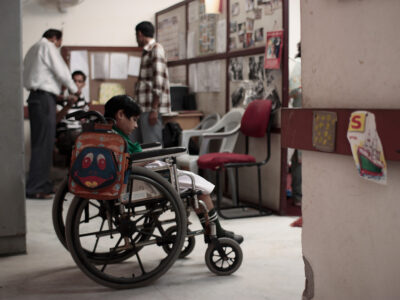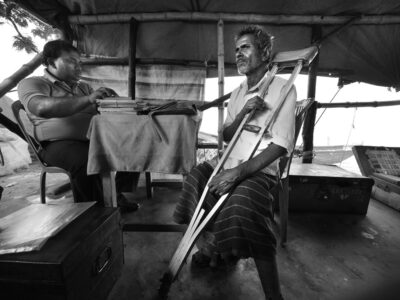Project Info
Project Description
People with disabilities often face a range of barriers that limit their full participation in society, including lack of access to education, employment, healthcare, transportation, and other essential services. This exclusion can lead to further marginalization and social inequalities.
However, disability is not just a problem to be solved; it is also a source of diversity, creativity, and strength. People with disabilities have unique perspectives and experiences that can contribute to a more inclusive and equitable society. By acknowledging and valuing these contributions, we can work towards a world that embraces diversity and promotes the full participation of all people.
Systematic reviews on disability can play a crucial role in understanding the challenges and opportunities facing people with disabilities and in identifying effective interventions and policies to promote their well-being and inclusion.
Effectiveness of interventions for improving social inclusion outcomes for people with disabilities in low- and middle-income countries: A systematic review
Funder: FCDO, under its support for the (CEDIL) and the Programme for Evidence to iNform Disability Action (PENDA)

©engelsmannen
Background
Over one billion people worldwide are living with some form of disability. Despite their right to participate in social and political activities, they often face exclusion due to stigmatizing attitudes and inaccessible environments. Discrimination can result from institutional barriers and systems that have yet to be designed to accommodate people with disabilities.
Efforts to foster social inclusion can lead to positive outcomes through various interventions. These may include enhancing social and communication skills, promoting access and participation in sports and the arts, and improving relationships through social support and violence prevention programs.
Such interventions can help to develop a more inclusive society that values the rights and dignity of all individuals.
Approach
We reviewed 37 studies that assessed the effectiveness of interventions on social inclusion outcomes for people with disabilities in LMICs. The studies were conducted between 2000 and 2022 in 16 countries, with the majority conducted in India and China. Many of the studies had methodological limitations, which decreased confidence in the study findings.
What we found
- Social inclusion interventions have a substantial and positive effect on the social behaviour, social skills, and broad-based social inclusion of persons with disabilities.
- Interventions designed to improve relationships between people with disabilities and their families and communities had a moderate effect.
Lead author – Dr Ashrita Saran
Effectiveness of interventions for improving livelihood outcomes for people with disabilities in low- and middle-income countries
Funder: FCDO, under its support for the (CEDIL) and the Programme for Evidence to iNform Disability Action (PENDA)
Background
There are over 1 billion people with disabilities worldwide, who often face exclusion from livelihood opportunities like employment, social protection, and access to banking and loans. Only 36% of people with disabilities over the age of 15 are employed, compared to 60% of people without disabilities. To address this, livelihood interventions are necessary, such as those that aim to improve access to financial, human, social, and physical capital.
Approach
The review examines the impact of interventions on the livelihood of people with disabilities in LMICs. It identifies nine eligible studies from countries such as Bangladesh, India, Nigeria, Ethiopia, Brazil, China, and Vietnam. However, all studies have some methodological limitations.
What we found
- All studies reported positive impacts on livelihood outcomes for people with disabilities in LMICs
- Studies focused on improving access to the workplace through various interventions
- Interventions included improving social attitudes to working with people with disabilities, providing wheelchairs, and offering supported employment
- Vocational training programmes, motivation to work programmes, community-based rehabilitation, and social skills training all showed positive impacts on livelihood outcomes
- Positive outcomes included acquisition of skills for the workplace, access to job market, employment in formal and informal sectors, and access to formal and informal social protection measures
- More rigorous study designs are needed for future research to develop a firmer evidence base and inform interventions at scale
Lead author – Dr Ashrita Saran
 |
 |
 |

